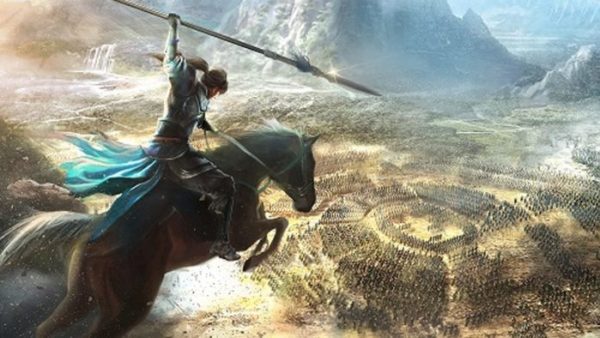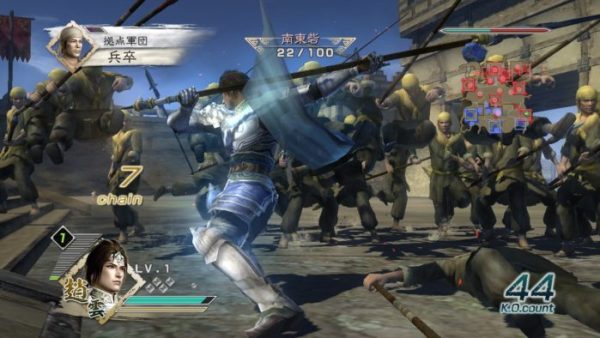When Dynasty Warriors 2 released back in 2000 it basically created a genre all of its own, featuring massive battles in which you mow down hordes of enemy soldiers. The hack-and-slash gameplay caught on wildly, and now 18 years later we’re on the cusp of Dynasty Warriors 9 releasing. There’s a reason this franchise has seen so much success, and it really boils down to the fact that Dynasty Warriors embodies the entire idea of player empowerment.
Player empowerment is a central idea to what video games are all about. Many video games want players to feel like they’re the center of the universes they jump into, where they can live out a fantasy of being some kind of superhuman, or a legendary hero. Whether it’s augmenting your body to ridiculous levels as Adam Jensen or raging through Ancient Greece as Kratos, many games make us feel like invincible gods. The idea of empowerment is something that’s been right at the heart of Dynasty Warriors, ever since it found its gameplay niche in Dynasty Warriors 2.

Each Dynasty Warriors game casts you as a lone general on a massive battlefield. While you do have allies, it usually falls to you to complete the required objectives and help your army win. While the series is loosely based on a historical piece of literature known as the Romance of the Three Kingdoms, Dynasty Warriors takes huge liberties with its overall design and story. Each character has a moveset that makes them a master warrior, like something from an over-the-top anime. Characters throw their weapons around with ease, break the earth, and soar through the air in combos.
This over-the-top feeling starts right from the beginning, as the game sets the stage for what you can expect in its cinematic openings. No more is this more exemplified than in Dynasty Warriors 7’s opening, which literally has Zhao Yun dropkicking a horse and skating down a waterfall. Looking at any one of these openings shows the kind of tone Dynasty Warriors is going for, and each one immediately gets you into that mindset as you start the game.
The combat in Dynasty Warriors, especially in later entries, has gotten absurd to the point of an epic kung fu movie. Look at Fire Emblem Warriors for example, which lets you cleave through enemy armies like butter, literally killing up to 100 soldiers in a single combo. Those average troops pose absolutely no threat to the player, and that’s completely on purpose. It directly instills players with the feeling of being a one-man wrecking crew, and getting that high kill count helps build the foundation of empowerment that the game plays on.

From there, Dynasty Warriors layers on a few other systems and aspects that build upon that sense of empowerment. Ally officers shower praise upon you when you achieve milestones or victories, and enemy generals say things about wanting to see if you measure up to what they’ve heard. The game boosts up your ego through these compliments, showing even more that the world of Dynasty Warriors really does revolve around you. That’s part of what gives the series such enduring appeal, the fact that the games can easily make you feel good as it showers praise on you for your actions in battle.
Dynasty Warriors wants to make you feel good while you’re playing, feel like you’re unstoppable, and that’s done with more than just praise and gameplay. To help hype you up, Dynasty Warriors’ soundtrack is rock-centric and filled with heavy guitars, drums, and more. This heavy rock ensemble stands in stark contrast to the ancient China setting of the series, but somehow it fits just perfectly. The guitar especially feels synonymous with Dynasty Warriors, and every bit of the soundtrack works to give the player that burst of spirit as they wade through armies.
Various Warriors games over the years have devised new ways to put power in your hands, to varying degrees of success. Fire Emblem Warriors gives you the ability to command each and every hero in your army, directing where they move and attack. Attack on Titan lets you jet around the battlefield with the maneuver gear, giving you a speed advantage over the powerful Titans. Meanwhile, Warriors All Stars gives you a special move that literally shines a spotlight on you, letting you attack enemies while your other party members cheer you on. All of these are examples of how Warriors games have made their core gameplay loop even more satisfying and rewarding for players.
Player empowerment isn’t always used to great effect, especially if through empowering the player any kind of social or political commentary gets put down. In the case of Dynasty Warriors, however, its experience relishes in giving you the tools to become a god of the battlefield.
Dynasty Warriors certainly isn’t a series for everyone, but its unique brand has helped it flourish for years with a dedicated fanbase. In terms of empowerment, you can’t get more spot on than this series, which meticulously builds every piece of the experience to contribute to the idea that you’re absolutely amazing, and everyone should know it.
